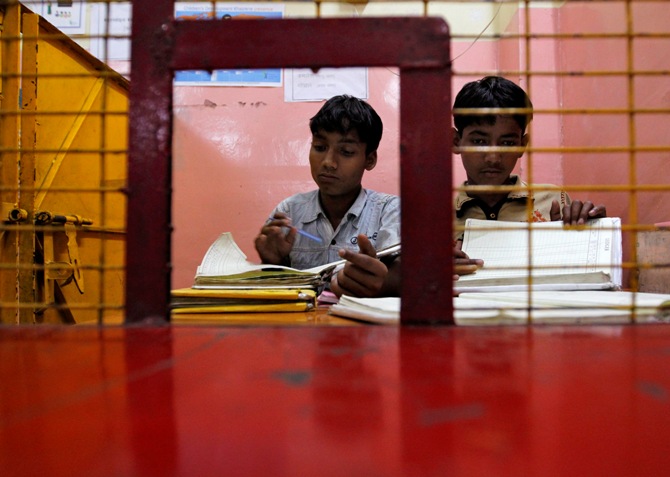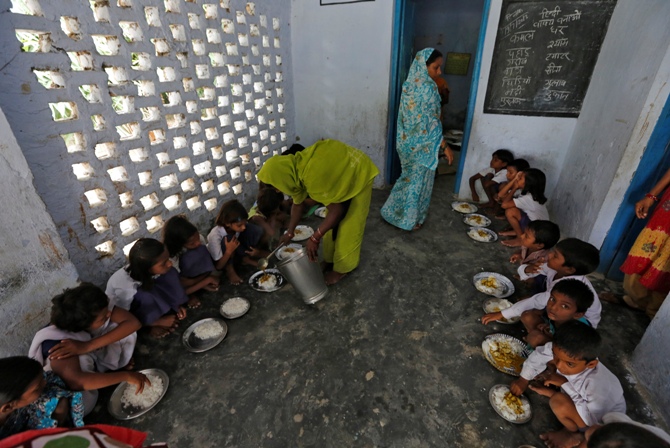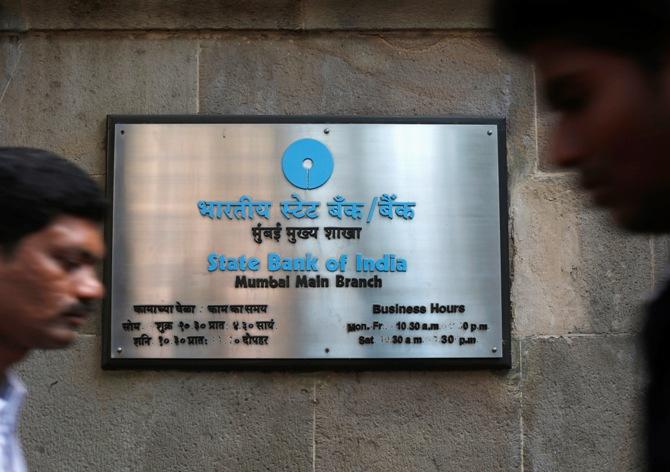 | « Back to article | Print this article |
How SBI plans to woo its minor clients
Following the Reserve Bank's move to allow minors to open and operate accounts, the State Bank of India, the nation's largest lender, on Thursday said it will start a special scheme for children shortly.
"We do open accounts for children but we have restrictions on overdrafts as if there is overdraft, we would not be able to realise it.
“There is no restriction on deposits, though. And we are going to launch a special scheme for children in the next three months," SBI Chairperson Arundhati Bhattacharya told reporters in Mumbai.
Click NEXT to read further. . .
How SBI plans to woo its minor clients
On the impact of the RBI asking banks to stop charging pre-payment penalty on floating-rate loans, she said SBI does not have any such charges, hence there would be no impact on margins for long.
She added that the bank charges foreclosure fees on fixed-rate term loans.
The RBI on Tuesday issued guidelines allowing minors over 10 years to operate bank savings accounts independently and use facilities such as automated teller machines and cheque books.
The central bank said the move was aimed at promoting financial inclusion and bringing uniformity in opening of such accounts in banks.
Click NEXT to read further. . .
How SBI plans to woo its minor clients
Minors were previously allowed to open fixed and savings deposit accounts with mothers as guardians.
"Banks are free to offer additional banking facilities like Internet banking, ATM/debit card, cheque book facility, etc, subject to the safeguards that minor accounts are not allowed to be overdrawn and that these always remain in credit," the RBI had said.
In another customer-friendly move, the regulator asked banks to stop penalising borrowers for foreclosing their floating-rate loans.
"It is advised that banks will not be permitted to charge foreclosure charges or pre-payment penalties on all floating-rate term loans sanctioned to individual borrowers, with immediate effect," the RBI said on Wednesday.
Click NEXT to read further. . .
How SBI plans to woo its minor clients
Floating loan products include housing, corporate, vehicle and personal loans.
Asked about challenges for the new government, Bhattacharya said the biggest would be controlling inflation, reviving growth, managing expectations and ensuring implementation of policies.
"But we also have to understand that the new government will also have to have a lot of consensus-building with states as many policies need state participation. For instance, land acquisition," she said.
On the RBI ban on refinancing of forex debt to pay back rupee loans, she said there could be some difficulties for over-leveraged companies and added that companies with large forex earnings should be allowed to do so.
Click NEXT to read further. . .
How SBI plans to woo its minor clients
"Those companies which have good earnings in foreign currency should also be able to borrow in foreign currency because that does improve finances, margins.
“The rupee rate is still higher than foreign currency rates and if you have a natural hedge you will be able to take advantage of it," she said.
Bhattacharya, however, said excessive externalisation of the rupee without putting in the rest of the pieces should not be encouraged as without ensuring repayment or servicing of the loan, it would be a riskier short-term measure.
It would not make a difference to an organisation and would end up increasing risks.
Click NEXT to read further. . .
How SBI plans to woo its minor clients
On non-performing assets, or bad loans, she said the worst is behind the system as many affected sectors such as telecom and mining have returned to healthy growth.
"Some of the sectors that first got into trouble, including telecom, are doing well now. The mines are being opened up.
“The power sector is beginning to do quite well. These are good indicators for us.
“We hope the momentum continues," she said.
Click NEXT to read further. . .






